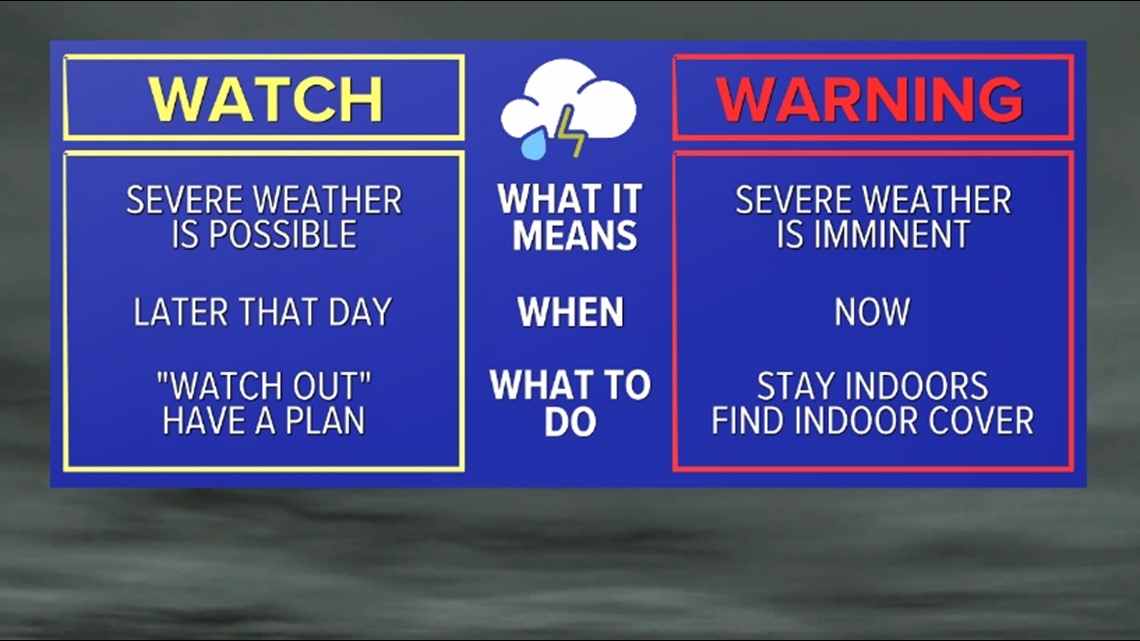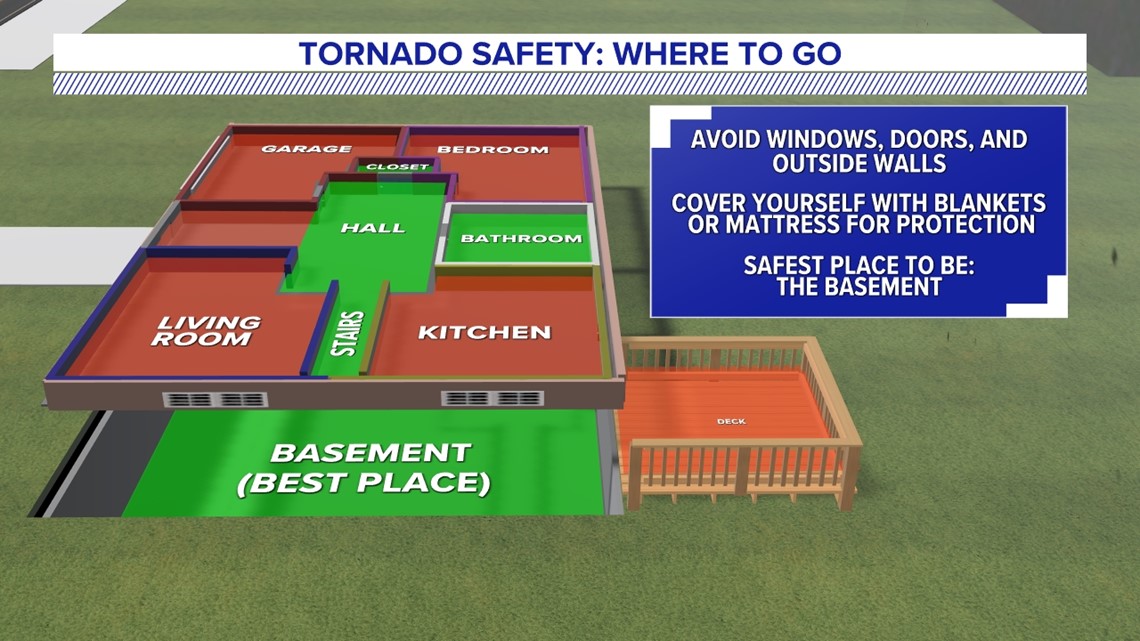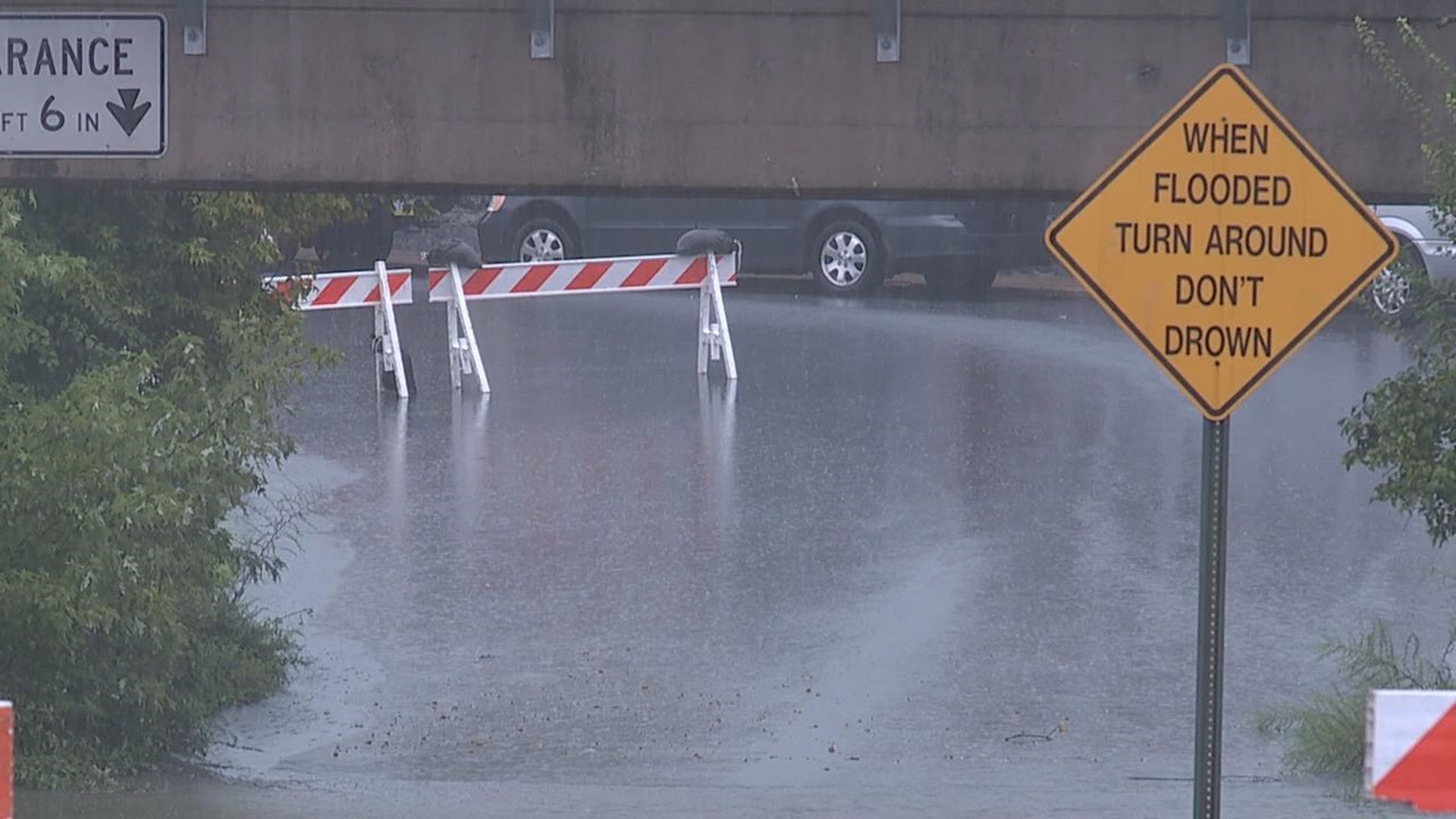HARRISBURG, Pa. — This week marks Severe Weather Awareness Week in Pennsylvania. The National Weather Service (NWS) and Pennsylvania Emergency Management Agency (PEMA) are teaming up to make sure Pennsylvanians are prepared as we enter the time of the year where we most often see severe storms.
When it comes to severe weather, there are a few fundamentals that everyone should know.
SEVERE THUNDERSTORMS
A storm is severe if it has one of three criteria: damaging winds over 58 mph, hail the size of a quarter or larger, or if it has a tornado.
If a severe thunderstorm warning is issued, your best course of action is to seek shelter indoors. Cars are also a relatively safe place if they're your only option.
The NWS will issue severe thunderstorm watches and warnings as conditions become favorable for these storms. You can receive these alerts for free via the NWS and by using the FOX43 app.
OUTLOOKS, WATCHES, WARNINGS
The difference between a watch and a warning can sometimes get confusing.
A watch is issued similar to a yellow traffic light. Severe weather is possible, so you should be prepared to stop.
A warning is similar to a red traffic light. Severe weather is imminent, and you need to stop and take action.
You can receive watches and warnings via weather apps, online, on TV and more. Jeff Jumper, resiliency program manager at PEMA, also highly recommends everyone get a NOAA weather radio.
“NOAA weather radio is a great thing to have mainly because it’s like a smoke detector for severe weather,” Jumper told FOX43. “Especially at night, you’re sleeping and you’re so used to your phone buzzing and vibrating. Your TV might not be on your radio might not be on, but a NOAA weather radio will wake you up and alert you to this.”
The NWS is the only agency that can issue severe weather watches and warnings. They recommend having two methods to receive these alerts at all times.


FLASH FLOODING
In Pennsylvania, flooding and flash flooding is our number one weather hazard.
This type of severe weather typically occurs with slow moving thunderstorms where heavy rain overwhelms drainage systems. Streams and creeks are most vulnerable to flash flooding, though anywhere it can rain, it can flood.
This type of severe weather often catches people off guard and can put them in dangerous situations. If you do encounter a flash flood warning, it's important to move to higher ground.
It's also important to avoid driving through flooded roadways. Since 2006, about 40% of people who have lost their lives due to flooding have done so due to driving through flood water in Pennsylvania. If you do encounter flooding while driving, the best advice is always turn around, don’t drown.
TORNADOES
We are no stranger to tornadoes in the commonwealth. Every county has seen at least one tornado.
When a tornado warning is issued, it’s important to not delay in getting to your safe place. This is the lowest level of your home and away from any windows, if possible. Having a way to protect your head could also make a big impact on your safety if a tornado does occur at your home.
“When you get down there, try and put a helmet on,” Jumper told FOX43. “We found that a lot of loss of life with tornadoes across the country has been due to trauma to the head… a hit in the head. So it’s important that if you have a helmet, a football helmet, anything… a bicycle helmet, anything like that. Just bring it down with you, pop it on your head.”
If possible, keep a phone or radio with you in your safe place while you wait the tornado warning out. Historically, June and July are the months that see the highest number of tornadoes in the Commonwealth.


GETTING INVOLVED
The final theme of Severe Weather Awareness Week is how people can get involved with both weather safety and awareness in their community.
There are numerous opportunities for individuals to help the NWS track severe weather, including Skywarn Spotters and HAM radio operators. Families can also make sure they’re prepared for bad weather by creating a plan and having an emergency kit ready to go.
“Your family, being ready and prepared for your family means you can get back on your feet quicker after a disaster," Jumper said. "If you share that readiness with your neighbor, eventually your community will get up faster, right? And then that entire region can get up faster. So that’s what it means to be a little bit more resilient for these disasters.”
Other ways to stay weather ready include having any of your organizations or employers get involved in the Weather Ready Nation initiative. This allows groups to partner with the NWS and collaborate on disaster preparedness.

